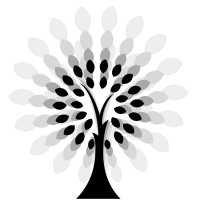Magister
Magister is a term in the Anrel Isles for a thaumaturges, or full practitioners of magic. More specifically, magisters are thaumaturges of the Rasian Academy with the ability to summon, bind and instruct elementals on their own, with no assistance from others. Sorcerors are practitioners with the skill and knowledge to instruct elementals, but without the ability to summon and bind them.
Historically all full magisters were members of the College of Magisters. This was one of the senior regulatory authorities of the Rasian Academy, ensuring correct and moral use of magic by its members. In the latter years of the Academy following the downfall of Belikast, the Magisteriate came to control the Academy entirely.
Today magisters are a small, enigmatic sect living in the ruins of the ancient city of Rasia, the sole survivers of the Rasian Academy which was destroyed during the Long War.
Magicplugin-autotooltip__small plugin-autotooltip_bigMagic
Magic, also called thaumaturgy is the art and science of harnessing elementals, and instructing them to carry out simple or complex tasks.
Invoking more powerful spirits or gods is a related but much more dangerous art, called theurgy.
Magic
magic
This is in a series of articles about
 plugin-autotooltip__small plugin-autotooltip_bigMagic
plugin-autotooltip__small plugin-autotooltip_bigMagic
Magic, also called thaumaturgy is the art and science of harnessing elementals, and instructing them to carry out simple or complex tasks.
Invoking more powerful spirits or gods is a related but much more dangerous art, called theurgy.
Magic
magic
This is in a series of articles about
This is in a series of articles about magic, thaumaturgy and esotericismplugin-autotooltip__small plugin-autotooltip_bigMagic
Magic, also called thaumaturgy is the art and science of harnessing elementals, and instructing them to carry out simple or complex tasks.
Invoking more powerful spirits or gods is a related but much more dangerous art, called theurgy.
Magic
magic
This is in a series of articles about.
History
In the age of the Great Schools of Thoughtplugin-autotooltip__small plugin-autotooltip_bigSchools of Thought
A school of thought is system of belief, or a methodological approach within an academic or philosophical system. The term was formally used for the various Schools of Thought within the Rasian Academy, with different approaches to the practice and application of in the first millennium BME, each school taught its own students with an apprenticeship or tutorial system of education. Each masters took on a small group of students and educated them in the field of expertise until they were considered ready to pass on to the next, or were considered sufficiently competent by a majority of their masters to ascend to a higher level. Which master students were assigned to was either the luck of the draw, or chosen through patronage. Although the system operated tolerably well for centuries, teaching varied greatly between the schools, which all had different approaches, and even between masters within the same school or college. As the Academy drew in size and prestige, student numbers increased, and there was seen to be a need for a common body to manage the educational progression, benefiting both students and taking away the administrative burden from the masters.
Therefore the Magisterial College was founded, to set standards and to regulate full admission to the Academy. Students were required to demonstrate a strong educational background, after which they entered a programme of education in the thaumaturgical disciplines. The early stages were theoretical, which they were required to complete before going on to practical, using lamenaries and practice elementals partly under the command of the master they were studying under.
If a student could demonstrate a thorough grasp of the theories and principles of thaumaturgy, and had shown sufficient wit and skill in being able to control and instruct an elemental, only then could they progress to the final ceremony, the Call, in which they summoned and bound a silf to be their familiar and prime source for the rest of their life.
In ancient times Magistry was merely one of the Schools of Thought at the The Grand Academy of Rasiaplugin-autotooltip__small plugin-autotooltip_bigRasian Academy
The Rasian Academy is the common name for the Grand Academy of Rasia, the greatest institution of magic and learning in the Anrel Isles., which came to dominate the Academy in the era prior to the Long War. Magistry taught that the art of thaumaturgy must be exercised with respect, knowledge and restraint, and never used lightly, or for personal profit or political gain. This philosophy was greatly inspired by the Oughtistsplugin-autotooltip__small plugin-autotooltip_bigOughtism
Oughtism is a moral and philosophical system, claiming an ancient inheritance from the moral codes of the Godmen. It continues to be influential throughout the Anrel Isles, and it's guiding principles have been the foundation of legal and religious codes throughout the.
